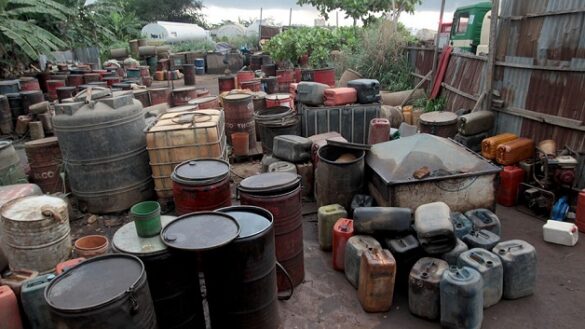Nigeria’s Struggle with Dwindling Oil Revenue and Economic Implications

### News Analysis: Nigeria’s Response to Declining Oil Revenue and Industry Challenges
Thank you for reading this post, don’t forget to subscribe!
In response to Nigeria’s declining oil revenue and production challenges, the Federal Government has unveiled plans to assert greater control over idle oil wells and threatened to revoke licences from non-performing operators. This strategic move, as disclosed by Minister of State for Petroleum Resources (Oil) Heineken Lokpobiri during a recent industry event in Lagos, underscores the government’s determination to boost oil production and revenue amid persistent economic strains.
Minister Lokpobiri highlighted significant economic losses, estimating that Nigeria has incurred approximately $30 billion in revenue over the past two and a half years due to low oil production levels. This revelation underscores the urgent need for remedial actions to address production declines and enhance revenue generation within the oil sector.
Of particular concern is the ongoing crisis involving Seplat/ExxonMobil, which has resulted in a substantial reduction in oil output. The minister expressed dismay over the impact of this crisis, emphasizing that Nigeria is losing millions of dollars daily due to the decline in oil production attributed to the Seplat/ExxonMobil conflict.
Furthermore, Minister Lokpobiri emphasized the importance of revamping operational efficiency and accountability within the industry. He outlined plans to allocate idle oil wells to capable operators and emphasized the government’s readiness to enforce regulations by revoking licences from companies that fail to meet production obligations.
The minister’s call for increased investment and alternative funding mechanisms reflects a broader strategy aimed at revitalizing Nigeria’s oil sector and reducing dependence on external sources amid fluctuating global oil prices. This approach underscores the imperative for policy reforms, infrastructure development, and international partnerships to stimulate economic recovery and maximize the nation’s oil and gas potential.
### Key Implications and Recommendations
– **Operational Optimization**: Addressing idle oil wells and enforcing licence regulations can enhance operational efficiency and stimulate increased oil production.
– **Economic Impact**: Nigeria’s economic resilience hinges on strategic interventions to mitigate revenue losses and foster sustainable growth within the oil and gas sector.
– **Policy Reforms**: Regulatory measures and policy reforms are critical to attracting investment, improving production capacities, and ensuring sectoral sustainability.
– **Investment Strategies**: Collaborative efforts with international stakeholders and financial institutions are essential to unlocking investment opportunities and driving industry growth.
– **Infrastructure Development**: Prioritizing infrastructure upgrades and local production capacity is imperative for reducing import dependency and strengthening domestic energy security.
Nigeria’s response to the challenges facing its oil sector underscores the need for proactive measures and comprehensive strategies to navigate industry complexities, stimulate economic recovery, and optimize resource utilization for sustainable development.





